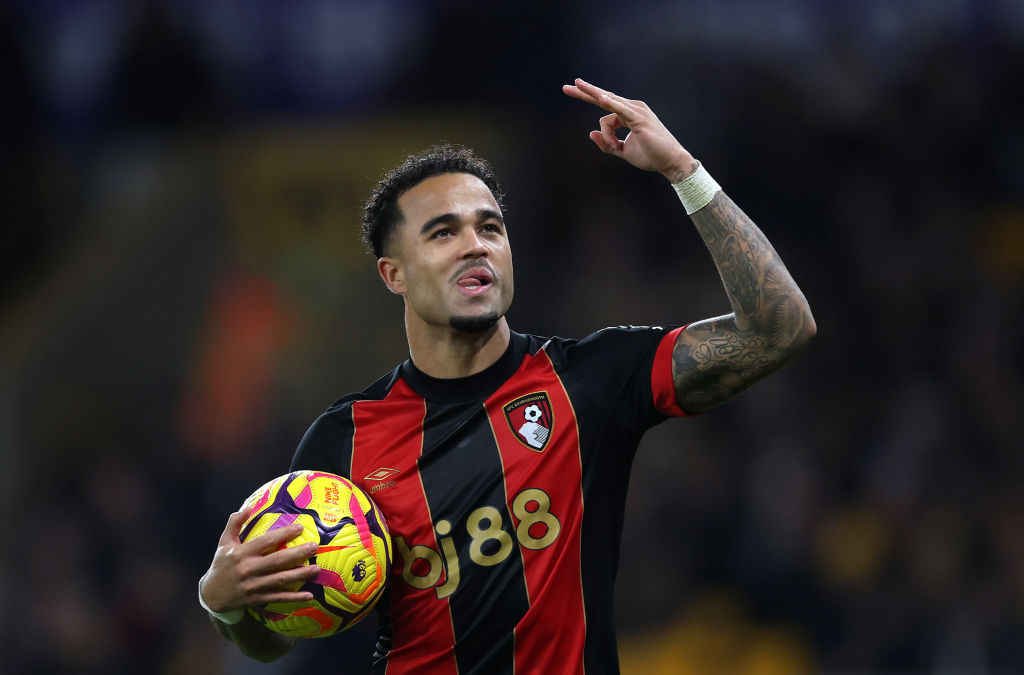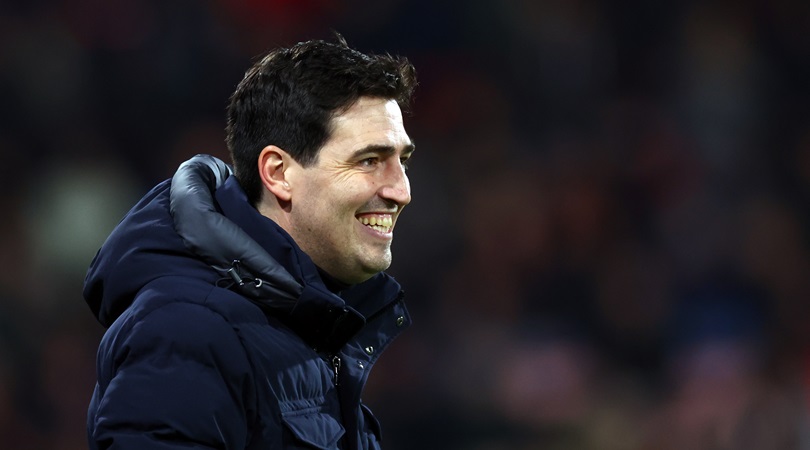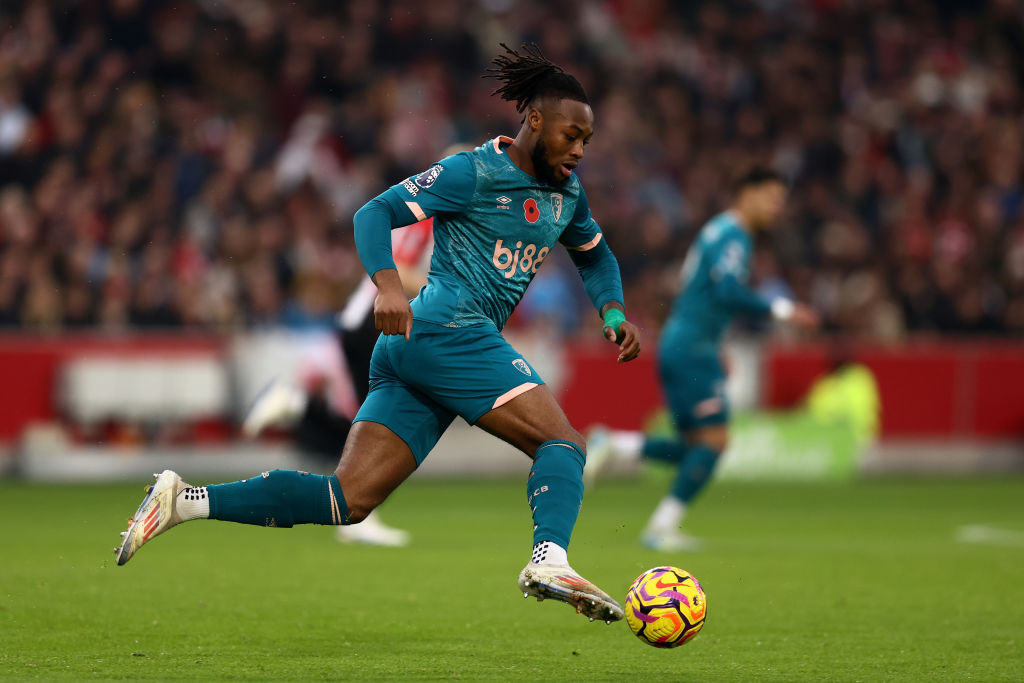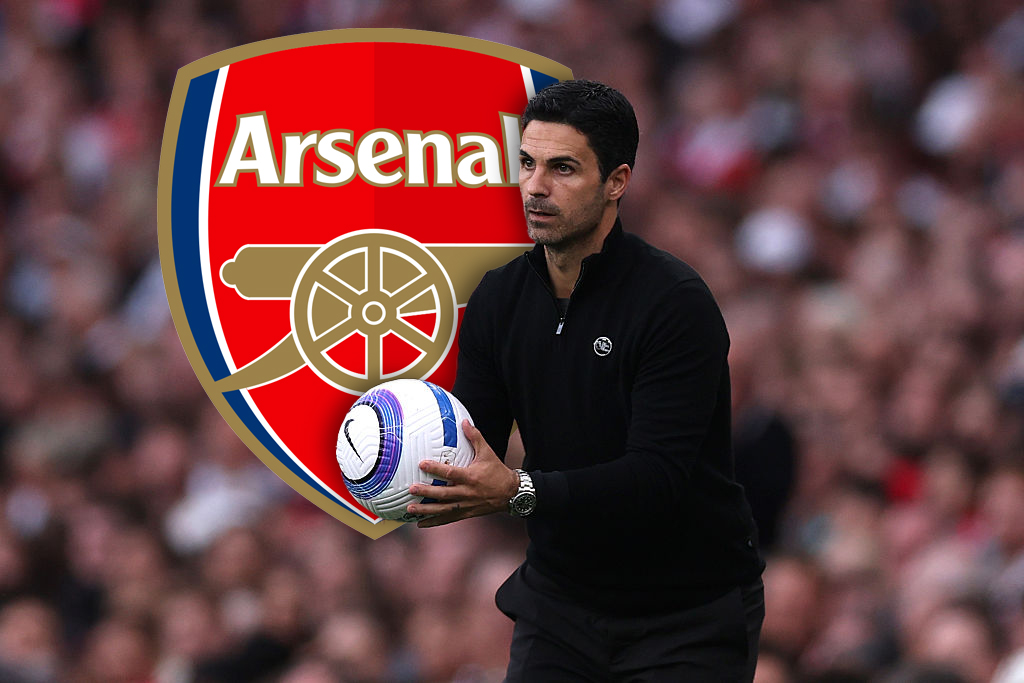The crazy stat that shows high-flying Bournemouth should be even better
Andoni Iraola has the Cherries well positioned but there might be more to come

Former Rayo Vallecano manager Andoni Iraola made the move to the Premier League in the summer of 2023 with a burgeoning reputation as a tactician but little to indicate the revolution he would lead on the south coast.
Bournemouth had just finished 15th in the first season of their second ever spell in the top division. Gary O’Neil was shoved aside to bring in the Spaniard, a bold decision not unlike the one that brought Mauricio Pochettino to England just down the M27 a decade ago.
Sacking a young English manager and hiring a fashionable name from abroad attracted the usual criticism but, a season and a half in, Bournemouth’s willingness to take their shot has the distinct whiff of a strategic masterstroke.
Bournemouth have never been better - and they should be even higher in the table

The Cherries are in uncharted waters. Iraola guided them to 12th last season, the highest league finish in their history. Halfway through 2024-25, they’re looking down at 12th from 7th and seeing Aston Villa, Tottenham Hotspur, Manchester United and Everton among the teams beneath them.
But Bournemouth’s analysts won’t have done much more than scratch the surface of the team’s underlying performance data before locating a curious inconsistency that suggests they could be doing even better.

Iraola’s transition-based game relies on pace out wide and energy in midfield, and it’s yielding goals aplenty for Bournemouth this season.
They’ve scored 29 times in their first 19 Premier League games. Combined with a lower number of goals against than everyone but the top five, that’s enough to put them in the chase for a European place they’ve never had before.
It’s impossible to criticise that. Ten seasons ago, Bournemouth won the Championship and it was by far their historical pinnacle. Ten seasons before that they were a mid-table League One side. Ten before that, they retained their third-tier status thanks to the Great Escape under Mel Machin.
Bournemouth’s rise hasn’t been achieved without significant investment or bumps in the road but the question the Cherries analysis team will be asking now isn’t how they got there – it’s how the Premier League’s worst performance against expected goals (xG) came about, what it means, and what the second half of the season looks like if it changes.
Bournemouth have racked up the third-highest xG in the division. According to Fbref data, they would have been expected to score 37.4 goals in their first 19 games of the season.
They’re short of that by 8.7 goals or nearly half a goal per game. Crystal Palace are closest at 7.1 under expected. Include penalties and Bournemouth are 8.4 goals lower than expected.
The quickest interpretation of this information is that Bournemouth are making sufficient chances of high enough quality to make up for the fact that they’re not taking them at the rate they should be.
Only Manchester City have taken more shots than Bournemouth this season but the Cherries are in the bottom five for goals per shot on target as well as the bottom seven for the percentage of their shots that hit the target.
If we assume the numbers will converge to some degree – that Bournemouth are neither master chance creators nor excessively profligate finishers, both of which are possible but don’t appear to be true right now – it will happen in one of two ways.
Either their xG per 90 minutes will drop, in which case their performance against it (goals minus xG) will level off, or their fortunes in front of goal will improve and they will score from more of the high-quality chances they make.
A reduction in xG doesn’t bear thinking about if poor finishing proves to be a persistent problem but optimists among the Vitality Stadium staff will fancy the ability of Justin Kluivert, Evanilson, Antoine Semenyo and Dango Ouattara to fire the Cherries into Europe for the first time.
Get FourFourTwo Newsletter
The best features, fun and footballing quizzes, straight to your inbox every week.
Chris is a freelance writer and the author of the High Protein Beef Paste football newsletter. He's based in Warwickshire and is the Head of Media for Coventry Sphinx.

